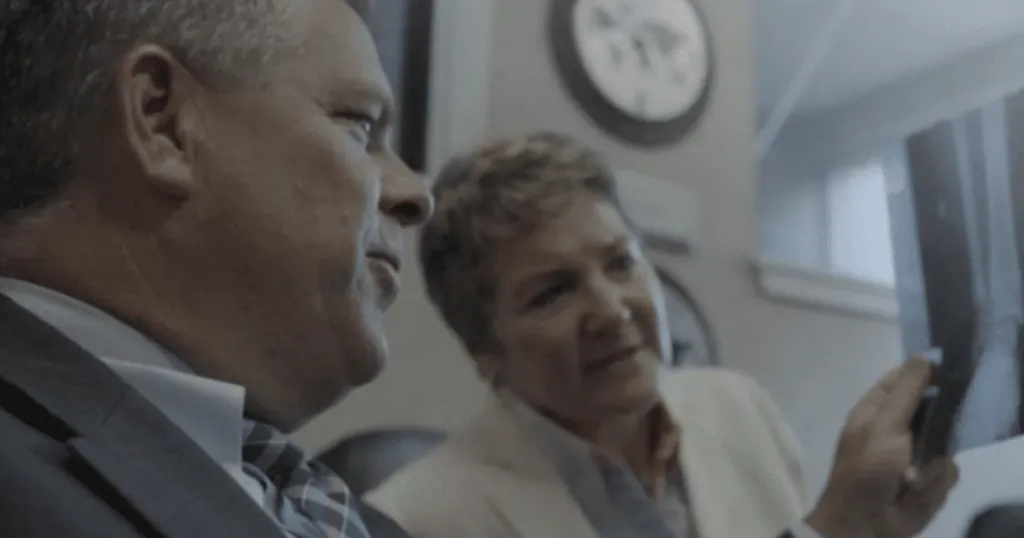Do Pre-Existing Conditions Affect Compensation In A Personal Injury Case In Rhode Island?
Your health history plays a crucial role in personal injury claims, especially if you have a pre-existing condition that could exacerbate your injuries. While it may seem like your condition could weaken your claim, the law offers protections, like the “Eggshell Skull” doctrine, to ensure you’re not unfairly disadvantaged and the defendant is held accountable for their negligence. However, navigating these legal nuances can be complex. Insurance companies often scrutinize medical histories and pre-existing conditions in personal injury claims to minimize settlements.
It is essential to understand how your health history affects your legal rights, as it can empower you during a personal injury lawsuit. But what do you need to know to protect your interests? This guide explores nuances of personal injury claims with a pre-existing condition, the steps you can take to strengthen your case, and the importance of working with an experienced attorney to ensure fair compensation.
What Is A Pre-Existing Condition?
A pre-existing condition refers to any medical condition, injury, or illness that existed before the incident that gave rise to the personal injury claim. These conditions can include chronic illnesses like arthritis, degenerative disc disease, or back pain, previous injuries such as a herniated disc, or recurring issues like migraines. For example, if someone with a prior knee injury is involved in a car accident that worsens their condition, this would be considered a personal injury claim with a pre-existing condition.
Pre-existing conditions can complicate personal injury claims. Insurance companies may argue that the current symptoms are solely due to the pre-existing issue rather than the accident. However, the law acknowledges the concept of aggravation, meaning a defendant can still be held responsible for exacerbating a pre-existing condition. Rhode Island follows the “Eggshell Skull” rule, which ensures that a plaintiff’s inherent vulnerabilities do not absolve a defendant of liability. This means that even if a plaintiff was more susceptible to injury, they are entitled to compensation for the harm caused by the incident.
Impact On Personal Injury Claim Valuation
Pre-existing conditions play a vital role in determining the value of a personal injury claim. Insurance companies meticulously analyze the medical records of the plaintiff to assess what extent of the injury can be attributed to the accident versus a pre-existing condition. Many insurers today rely on advanced technology and analytics tools, including machine learning algorithms, to do this and evaluate claims more efficiently and accurately.
Machine learning tools examine medical history, accident details, and treatment records to estimate the extent to which an injury is linked to the incident. These algorithms compare patterns from thousands of prior claims to estimate compensation amounts, often flagging cases where a pre-existing condition might reduce liability. For instance, if a claimant had a degenerative back condition before a car accident, the algorithm might attribute a portion of the pain or medical treatment to the existing issue rather than the accident.
While these tools can streamline the process, they may also unfairly devalue some personal injury claims. Insurers might argue that a significant portion of medical bills or lost wages is unrelated to the accident, resulting in lower settlement offers. This makes it critical to clearly document how the pre-existing injury was made worse due to someone else’s negligence. Detailed medical reports, expert testimony, and evidence demonstrating a direct link between the accident and worsened symptoms are essential in countering such assessments.
Ultimately, pre-existing conditions don’t disqualify you from compensation but highlight the importance of carefully preparing your claim. By understanding how insurers evaluate these factors and working with an experienced attorney, you can ensure that your claim reflects the true impact of the accident on your health and finances.
Documenting And Disclosing Pre-Existing Conditions
Understanding how pre-existing conditions impact your personal injury lawsuit begins with thorough documentation and transparent disclosure. Properly detailing your medical history ensures that the effects of the accident on your condition are accurately represented and strengthens your case.
Here’s a step-by-step guide to documenting your medical history:
Gather All Relevant Medical Records
Start by obtaining complete records of your medical history from your healthcare providers. Include diagnoses, treatments, prescriptions, and imaging reports. These documents establish your health baseline before the accident and act as crucial medical evidence, helping differentiate pre-existing conditions from new injuries.
Maintain A Post-Accident Medical Journal
Track all post-accident symptoms, treatments, and changes in your condition. Keeping detailed notes provides a timeline of how the accident has aggravated your pre-existing condition, which is critical in claim evaluations.
Consult With Medical Experts
Medical professionals can provide critical insight into how the accident affected your health. Expert testimony or written opinions can clearly link the incident to the worsening of your condition, countering potential arguments from insurers.
Be Transparent About Your Medical History
Disclose pre-existing conditions honestly during legal proceedings. Concealing them can harm your credibility and weaken your case. Transparency helps demonstrate how the accident specifically exacerbated your condition.
Working with a law firm like Marasco & Nesselbush ensures that the burden of managing complex medical documentation does not fall on you. Our experienced attorneys meticulously handle gathering and presenting medical evidence, allowing you to focus on recovery while we strengthen your case.
Legal Strategies To Mitigate Risks
When pursuing a personal injury claim with pre-existing conditions, understanding and implementing defensive strategies is crucial to prevent reductions in settlements. Insurance companies often attempt to lower the value of your claim by attributing injuries to pre-existing conditions, but strategic planning can counter these efforts effectively.
Some of the key legal strategies that can help ensure that your claim reflects the true extent of damages and counter efforts to reduce settlements unfairly include:
Emphasize Aggravation Of Pre-Existing Conditions
A key strategy is demonstrating how the accident worsened an existing condition. Use comprehensive medical records and expert testimony to clearly differentiate between the pre-existing baseline and the aggravated state caused by the incident. This evidence establishes a direct link between the accident and additional harm.
Challenge Insurance Company’s Algorithms
Insurance companies often use machine learning and neural networks to predict claim outcomes based on prior cases. These tools can unfairly downplay aggravations by over-relying on historical data. An experienced personal injury lawyer in RI can challenge these automated conclusions, presenting tailored evidence to show how your case is distinct from typical patterns.
Leverage Comparative Case Analysis
Neural networks assess how specific argumentation strategies influence outcomes. By reviewing prior cases, your attorney can craft arguments that have been successful in similar situations. This proactive approach allows for the development of counterarguments that address likely insurer tactics.
Focus On Credibility And Consistency
Maintain transparency and consistency in your medical records, testimony, and interactions with insurers. A credible case minimizes opportunities for insurers to argue against your claim.
The Importance Of Hiring A Personal Injury Attorney
Navigating personal injury and car accident settlements involving pre-existing conditions can be overwhelming without professional legal support. An experienced personal injury attorney plays a vital role in ensuring your rights are protected, and your case is handled effectively. They can help:
Offer Expert Guidance
An attorney provides critical legal expertise, helping you understand how pre-existing conditions impact your claim. They can analyze your medical records and consult with experts to develop strategies to counter insurance company tactics. Their knowledge of Rhode Island case law and the local legal landscape ensures your pre-existing conditions are fairly represented.
Maximize Your Compensation
Insurance companies often attempt to minimize settlements by attributing injuries to pre-existing conditions. An experienced attorney negotiates aggressively on your behalf, presenting evidence that highlights how the accident aggravated your condition. This ensures that you receive the full compensation you deserve for injuries sustained in the accident.
Navigate Paperwork And Procedures
Personal injury claims with a pre-existing condition involve extensive documentation and strict deadlines. Attorneys manage this process on your behalf, ensuring that medical records, accident reports, and legal filings are accurate and submitted on time. Their attention to detail reduces errors that could jeopardize your claim.
Working with a personal injury attorney, you gain a dedicated advocate who will handle the complexities of your case, guiding you through every step of the way while you focus on recovery.
Conclusion
Dealing with pre-existing conditions in personal injury claims can be complex, but expert legal guidance can make all the difference. Legal principles like the “Eggshell Skull” doctrine protect your right to compensation, ensuring that the insurance companies and the negligent party’s legal team cannot unfairly use your pre-existing conditions against you.
An experienced Rhode Island personal injury lawyer understands these legal nuances and can help you build a strong case. They can help you every step of the way, from documenting aggravation and representing your interests to countering insurer tactics and negotiating a fair settlement.
If you are navigating a personal injury claim with a pre-existing condition in Rhode Island, the experienced attorneys at the law firm of Marasco & Nesselbush are here to help. Contact us today to schedule a free consultation and take the first step toward justice.
FAQs
How do I prove that my injury is not related to pre-existing injuries?
Document how the accident worsened your condition with medical records and expert testimony. Highlight differences between your pre-accident baseline and post-accident state to establish the aggravation caused by the incident.
Can an insurer reject my claim based on a pre-existing condition?
Insurers may attempt to reduce compensation by attributing injuries to prior issues. Proper documentation and legal support can help you counter these tactics.
What is comparative negligence, and how might it affect my personal injury case if I have a pre-existing condition?
Comparative negligence evaluates each party’s contribution to the accident. If you share fault, your compensation may be reduced. Although pre-existing conditions don’t impact comparative negligence directly, they can still influence claim value and reduce the amount of compensation you might receive if not documented properly.
Why is it important to disclose prior injuries?
Disclosing existing injuries ensures transparency and strengthens your credibility. Concealing them could harm your case, while clear documentation helps demonstrate how the accident aggravated your health condition.
What kind of conditions matter in accident claims?
Conditions like chronic illnesses, previous injuries, and recurring issues matter if they are worsened by the accident. Proper documentation can show the extent of aggravation and its impact on your claim.
Can I recover compensation after a car accident if I have a pre-existing condition?
Yes, you can receive compensation if the accident aggravated your pre-existing condition. Legal principles like the “Eggshell Skull” doctrine ensure you’re entitled to damages for additional harm caused by the accident.
Fill out this form below to get started.
If you think you may have a case, contact us now for a FREE consultation
"(Required)" indicates required fields


